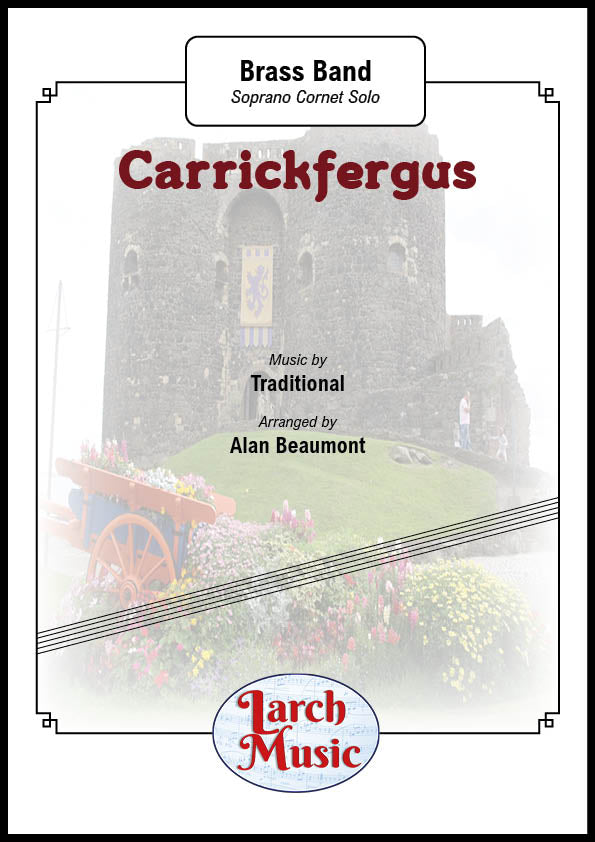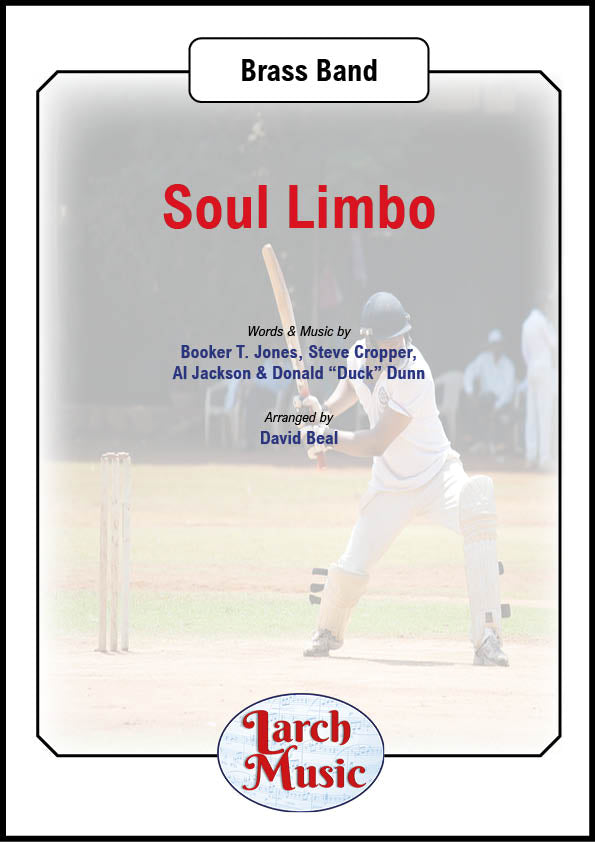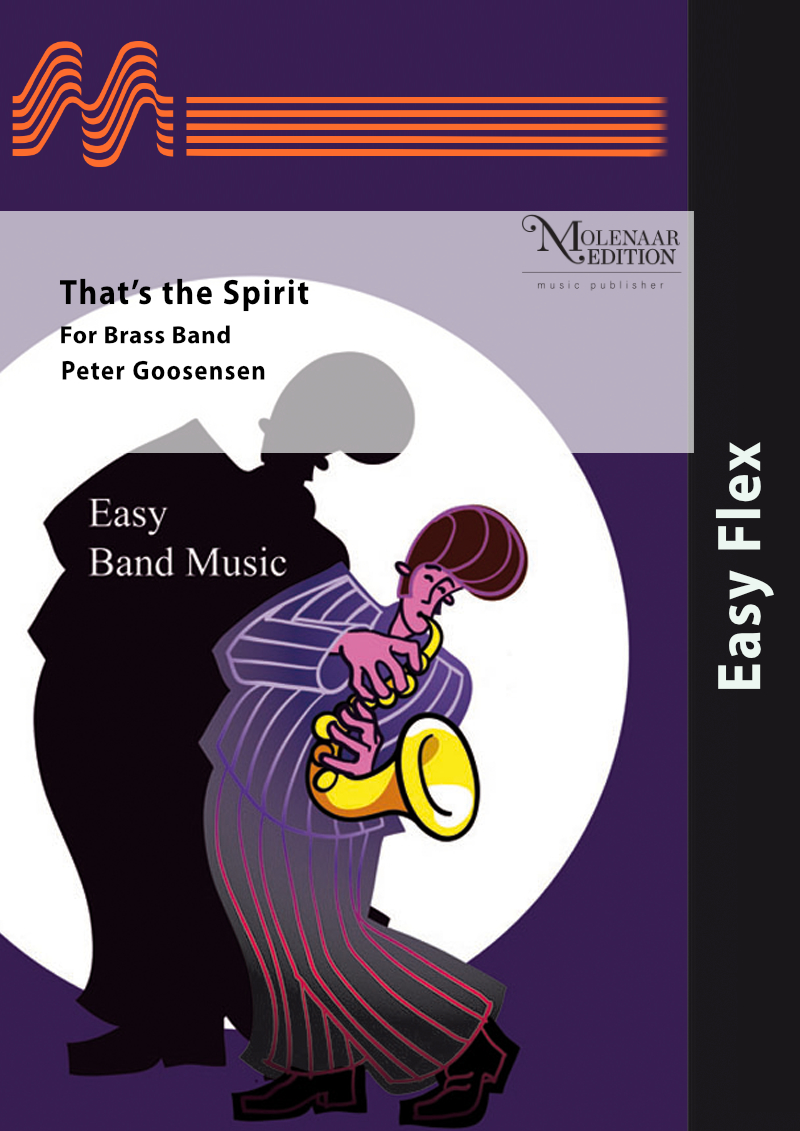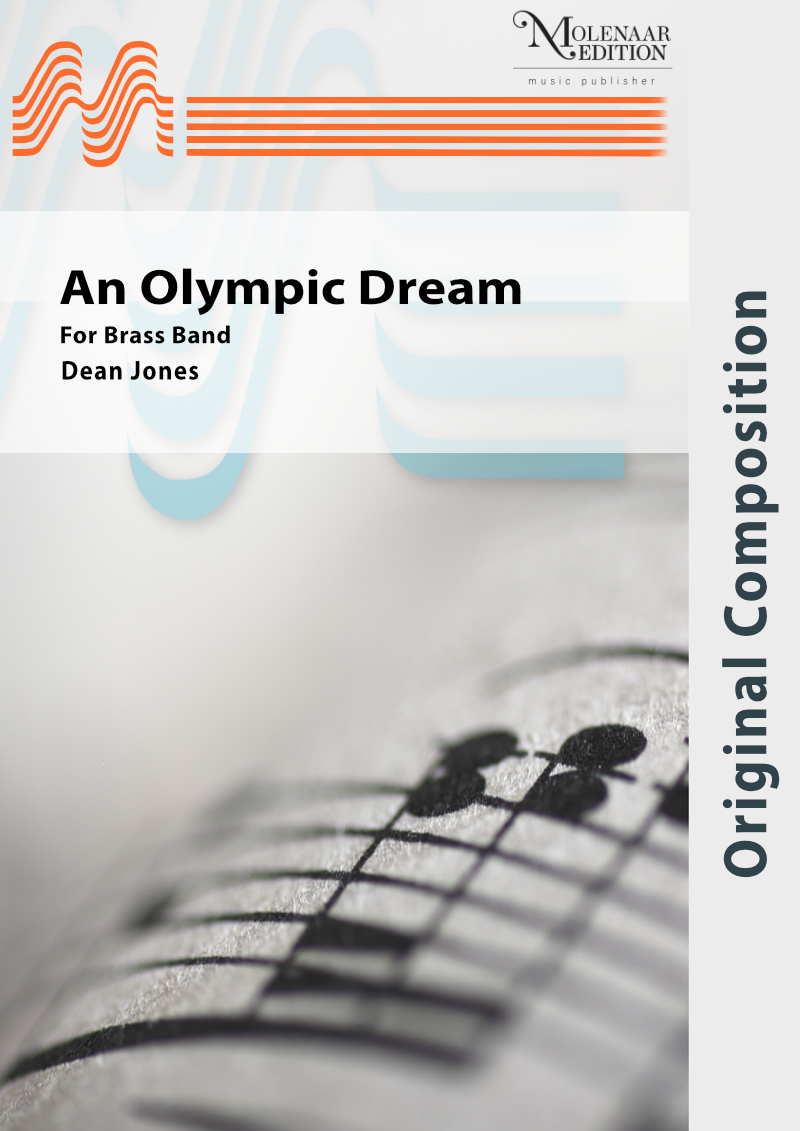Results
-
£96.00
Celtic Warriors (Bra) - Jim Paterson - Mike Kilmartin
Imagine those epic movies set in historical times or films like The Lord of the Rings and Conan the Barbarian. The piece is about a band of Legendry Mystical Celtic Warriors answering an ancient cry for help the "Call to Arms" coming of a town whom are being attack from an Evil Sorcerer King. The whole idea behind this is to show that there are people willing sacrifice everything even their own life in the protections of others. Arranged by Mike Kilmartin on original themes by Jim Paterson.
Estimated dispatch 7-14 working days
-
£84.00
Reflection (Bra) - Nick Van Elsen
Reflection' is written for the wind band of the 'Kunstacademie Noord-Limburg' conducted by Tom D' Joos, this orchestra also worked on 'Klankspiegelingen', a bigger project on the occasion of the first anniversary of the carillon in Neerpelt. The composer distilled a number of themes for his choral 'Reflection'.
Estimated dispatch 7-14 working days
-
£67.00
Taiko & Geisha (Bra) - Traditional - Fredrick Schjelderup
"Taiko & Geisha" was commissioned by the Norwegian brass band, Kleppe Musikklag, as a part of their contest program: "Around the world", for the entertainment contest, Siddis Brass Festival, in 2012. The piece is in some ways a small "postcard" or a hommage to the sound of different asian music. It includes drum features (quasi Taiko-drumming), solos and great big melodic lines as well as the sound of traditional Koto-harp themes.
Estimated dispatch 7-14 working days
-
 £30.00
£30.00Carrickfergus - Soprano Cornet & Brass Band Sheet Music Full Score & Parts - LM399
COMPOSER: TraditionalARRANGER: Alan BeaumontThe famous Irish tune given a fresh solo approachBrass Band Sheet Music Full Score & Parts"Carrickfergus" is a famous Irish folk song and traditional lament, often interpreted as a heartfelt ballad oflost love, loneliness, and a deep, aching longing for one's home or a past life. Named after the town in County Antrim, Northern Ireland, it features lyrics about a wanderer reflecting on unattainable love, often evoking themes of emigration, old age, and nostalgia.LM399 - ISMN : 9790570003990
In Stock: Estimated dispatch 3-5 working days
-
 £25.00
£25.00Halcyon - Brass Band - MM020 - Tim Middleton
COMPOSER:Tim MiddletonA great new march from Tim MiddletonCommissioned for Busselton Brass Band' s 150th AnniversaryDuration: 3:22Brass Band Concert MarchThe Busselton Brass Band was founded in 1871 and celebrated its 150th anniversary in 2021.Named in honour of the whale-ship that shipwrecked in Geographe Bay in 1844, the march opens with a stately introduction and the main melody mimics the rise and fall of the ocean waves around the Busselton Jetty and town.The bass solo is inspired by the town's whaling and fishing history, and then returns to the original melody.The trio changes into 2/4 after the initial 6/8 contrasting the early years of Busselton and the more recent tourism and vineyard history. The trio also has a counter melody second time through to honour the band members who fought in World War I and II.At the end of the trio a D.C. to restate the opening themes, then a rousing finish at the end of the Bass Solo.A must for your summer concerts!
In Stock: Estimated dispatch 3-5 working days
-
 £65.00
£65.00Second Suite in F - Brass Band Sheet Music Full Score & Parts - LM602 - Gustav Holst
COMPOSER: Gustav HolstTRANSCRIBED : Daniel S. AugustineA brand transcription from Holst's manuscript score for brass band.A very authentic version from the original for Military Band.Can be used as a testpiece in your next own choice contestSuitable for Section 3 bands upwardsSecond Suite in FOp. 28, No. 2 (1922)1. MarchThe "March" of the Second Suite begins with a simple five note motif between the low and high instruments of the band. The first folk tune is heard in the form of a traditional British brass band march using the morris-dance tune "Glorishears". After a brief climax, the second strain begins with a euphonium solo playing the second folk tune in the suite "Swansea Town". The theme is repeated by the full band before the trio. For the trio, Holst modulates to the unconventional subdominant minor of Bb minor and changes the time signature to 6/8, thereby changing the meter. Usually one would modulate to subdominant major in traditional march form. While Sousa, reputably the "king of marches", would sometimes change time signatures for the trio (most notably in "El Capitan"), it was not commonplace. The third theme, called "Claudy Banks",[2] is heard in a low woodwind soli, as is standard march orchestration. Then the first two tunes are repeated da capo.2. Song without Words "I'll Love My Love"Holst places the fourth folk song, "I'll Love My Love" in stark contrast to the first movement. The movement begins with a chord and moves into a solo over a flowing accompaniment. The solo is then repeated, forming an arc of intensity. The climax of the piece is a fermata, followed by a cornet pick-up into the final measures of the piece.3. Song of the BlacksmithAgain, Holst contrasts the slow second movement to the rather upbeat third movement which features the folk song "A Blacksmith Courted Me". There are many time signature changes (4/4 to 3/4) making the movement increasingly difficult because the accompaniment has a pick up on the up-beats of each measure. The band joins in on the melody around the body of the piece and are accompanied with the sound of a blacksmith forging metal with an anvil called for in the score. The final major chord has a glorious, heavenly sound, which opens way to the final movement.This chord works so effectively perhaps because it is unexpected.4. Fantasia on the "Dargason"This movement is not based on any folk songs, but rather has two tunes from Playford's Dancing Master of 1651. The finale of the suite opens with a solo based on the folk tune "Dargason", a 16th-century English dance tune included in the first edition of The Dancing Master. The fantasia continues through several variations encompassing the full capabilities of the band. The final folk tune, "Greensleeves", is cleverly woven into the fantasia by the use of hemiolas, with Dargason being in 6/8 and Greensleeves being in 3/4. At the climax of the movement, the two competing themes are placed in competing sections.As the movement dies down, a duet forms a call back to the beginning of the suite with the competition of low and high registers.The name 'dargason' may perhaps come from an Irish legend that tells of a monster resembling a large bear (although much of the description of the creature has been lost over time), the Dargason tormented the Irish countryside. During the Irish uprising of the late 18th century, the dargason is supposed to have attacked a British camp killing many soldiers. This tale aside, 'dargason' is more likely derived from an Old English word for dwarf or fairy, and the tune has been considered English (or Welsh) since at least the 16th century. It is also known as 'Sedony' (or Sedany) or 'Welsh Sedony'.
In Stock: Estimated dispatch 3-5 working days
-
 £21.50
£21.50Soul Limbo - Brass Band Full Score & Parts - LM717
COMPOSER: Booker T. Jones, Steve Cropper, Al Jackson & Donald 'Duck' DunnARRANGER: David BealOne of the most familiar TV Themes - "Test Match Cricket"Suitable for most sections of band from Youth through to ChampionshipGreat for your Summer concertScored for Traditional English Brass Band
In Stock: Estimated dispatch 3-5 working days
-
 £48.00
£48.00That's the Spirit - Peter Goosensen
That's the Spirit! Is a fun and challenging work that is a great flashy opening to concert programs, for youth orchestras and smaller bands. The driving drum and percussion groove provides a solid rhythmic base. The various wind sections of the band deliver both impressive themes but also more subtle melodic lines.
Estimated dispatch 10-14 working days
-
 £72.00
£72.00An Olympic Dream - Dean Jones
Using a stately fanfare, this action-packed piece has all the hallmarks of the drama, nerve and excitement that make the title come to life! Enjoy the various themes as they seamlessly glide through to a thrilling conclusion!
Estimated dispatch 10-14 working days
-
 £190.00
£190.00The Maestro - Andrew Pearce
The Maestro, a concertino voor trompet en band, was commissioned by Philip Cobb, principal trumpet of the London Symphony Orchestra. I spent most of Summer 2011 in Prague and London composing this demanding piece, for this was a wonderful opportunity to write a large scale work for one of the world's finest Trumpet virtuosos and I accepted the assignment with great enthusiasm. I also felt a great responsibility to deliver a tour de force for this world class player that was both challenging and enjoyable. Phil was seeking melodies and themes in the piece and had enjoyed my album 'Cinema Symphony', and the dramatic vistas it conjured up. Before writing began, I listened to his beautiful album 'Life Abundant' many times, ensuring I had his sound in my head while writing. The piece represents the many aspects of a contemporary trumpeter's musical life from; brass band chorale (a homage to Phil's musical roots), to the symphonic concert hall to the film recording studio. I am delighted to have had Phil and the International Staff Band record this work under the baton of Dr Stephen Cobb. Its a tour de force not only for the soloist but also for the band and should be an exciting challenge for the very best bands out there.
Estimated dispatch 10-14 working days




